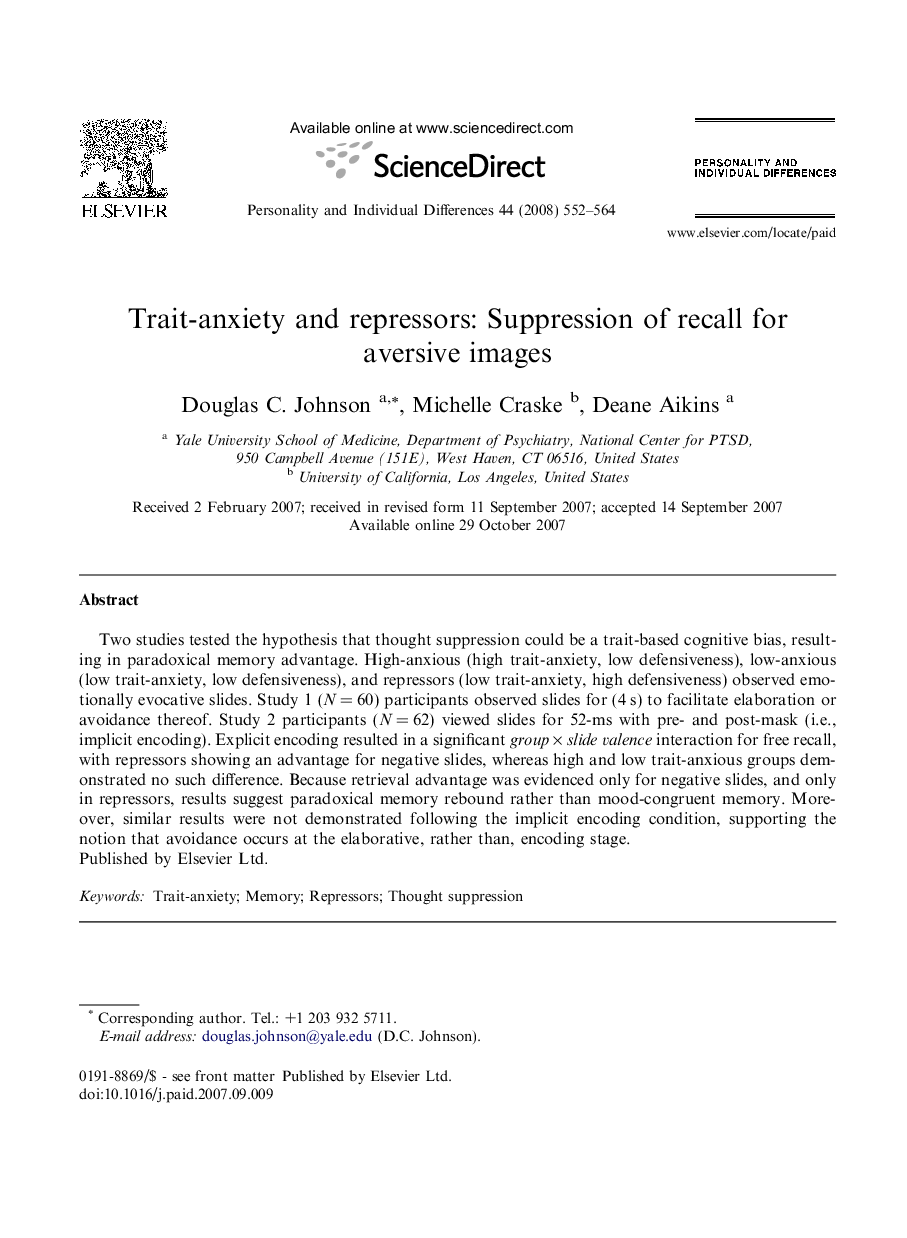| Article ID | Journal | Published Year | Pages | File Type |
|---|---|---|---|---|
| 892796 | Personality and Individual Differences | 2008 | 13 Pages |
Two studies tested the hypothesis that thought suppression could be a trait-based cognitive bias, resulting in paradoxical memory advantage. High-anxious (high trait-anxiety, low defensiveness), low-anxious (low trait-anxiety, low defensiveness), and repressors (low trait-anxiety, high defensiveness) observed emotionally evocative slides. Study 1 (N = 60) participants observed slides for (4 s) to facilitate elaboration or avoidance thereof. Study 2 participants (N = 62) viewed slides for 52-ms with pre- and post-mask (i.e., implicit encoding). Explicit encoding resulted in a significant group × slide valence interaction for free recall, with repressors showing an advantage for negative slides, whereas high and low trait-anxious groups demonstrated no such difference. Because retrieval advantage was evidenced only for negative slides, and only in repressors, results suggest paradoxical memory rebound rather than mood-congruent memory. Moreover, similar results were not demonstrated following the implicit encoding condition, supporting the notion that avoidance occurs at the elaborative, rather than, encoding stage.
